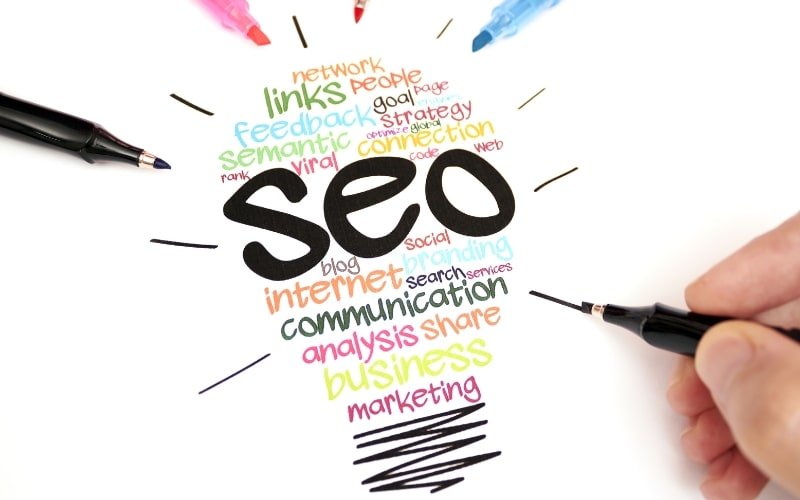In today’s digital landscape, Search Engine Optimization (SEO) has become a fundamental aspect of growing and maintaining a successful online presence. For small businesses, SEO is not just an option but a necessity. It helps your website get discovered by potential customers, increasing both visibility and credibility. While it may seem like a daunting task to compete with larger companies, SEO levels the playing field by giving small businesses the opportunity to rank for relevant keywords and attract a local or niche audience. Let’s dive into what SEO is and why your small business cannot afford to ignore it.
Understanding the Basics of SEO

At its core, SEO stands for Search Engine Optimization, a process that aims to improve a website’s position on search engines like Google. What Is SEO? It’s about ensuring your website appears in those search results by optimizing both the content and technical aspects of your site.
When people search for something online, search engines provide a list of results based on how well the content aligns with the user’s search intent. Learning What Is SEO can help you better understand how to make your website more accessible to potential customers.
For small businesses, understanding What Is SEO can serve as a cost-effective marketing strategy. It doesn’t require a massive budget, and with a little time and effort, small businesses can begin ranking for relevant terms. SEO is typically divided into two categories: on-page and off-page. On-page SEO involves optimizing individual pages of your website for specific keywords, while off-page SEO focuses on external factors like backlinks and social media signals that can improve your site’s authority.
If you’re still wondering What Is SEO, think of it as a way to drive organic traffic to your site. It helps you build a long-term strategy for visibility and customer acquisition. In summary, mastering What Is SEO gives you an edge in connecting with your audience in an increasingly digital world.
How SEO Works: The Role of Search Engines
What Is SEO hinges on understanding how search engines like Google work. These platforms use algorithms to rank web pages based on a variety of factors. At the most basic level, search engines crawl websites to understand their content. They index these pages and determine how relevant they are to specific search queries. The more relevant and authoritative your page, the higher it will rank.
For small businesses, it’s important to recognize that Google and other search engines prioritize user experience. Websites that load quickly, are mobile-friendly, and provide quality content are more likely to rank well. Another critical aspect of What Is SEO is understanding search intent — why a user is searching for something. Are they looking for information, making a purchase, or seeking directions? By aligning your website with the intent behind specific search queries, you increase the chances of ranking higher.
If you’ve ever wondered What Is SEO, it’s essentially the process of optimizing your website to meet the criteria that search engines use to rank pages. This process may seem technical, but small businesses that invest time in understanding the basics of how search engines work can see significant benefits in their traffic and rankings. A strong grasp of What Is SEO can be the difference between a website that attracts visitors and one that doesn’t.
Keyword Research: The Foundation of SEO

One of the most critical components of SEO is keyword research. Keywords are the phrases and terms that users type into search engines when they are looking for something. For example, a user searching for “affordable SEO services for small businesses” is entering a keyword that you can target in your content. Understanding What Is SEO is vital to ensure you know how keywords fit into your overall strategy.
Keyword research involves identifying the terms and phrases your target audience is likely to use when searching for your products or services. Learning What Is SEO helps small businesses realize the value of targeting specific phrases that connect with their audience. There are different types of keywords, such as short-tail (broad and highly competitive) and long-tail (more specific and less competitive). For small businesses, focusing on long-tail keywords is often more effective because they target a niche audience and are easier to rank for.
The importance of keyword research cannot be overstated. Without proper keywords, you might miss out on potential customers who are actively looking for what you offer. Tools like Google Keyword Planner or Ubersuggest are excellent resources for businesses to understand What Is SEO and how to find the right keywords to target. With a good grasp of What Is SEO, small businesses can better position themselves in search engine rankings.
By incorporating What Is SEO into your keyword research strategy, you can ensure your content aligns with search intent, leading to better visibility and engagement. Remember, knowing What Is SEO provides a solid foundation for driving organic traffic and achieving long-term success.
On-Page SEO: Optimizing Your Website for Success
On-page SEO involves the optimization of individual pages on your website to improve their rankings on search engines. It’s essential for small businesses to focus on optimizing each page to ensure it can rank for the targeted keywords. Several elements come into play with on-page SEO.
First, your meta title and description are crucial. These are the text snippets that appear in search engine results, and they should be compelling enough to make users want to click on your link. Including keywords in your title, headers, and throughout your content is important, but always ensure the content reads naturally.
Another vital factor in on-page SEO is content quality. Search engines prioritize content that is informative, engaging, and relevant. Avoid keyword stuffing, as this can negatively impact your rankings. Instead, aim to provide value to your audience, addressing their questions and needs.
Finally, the technical aspects of on-page SEO should not be ignored. Website speed, mobile-friendliness, and clear navigation can significantly improve user experience, which in turn boosts your SEO rankings.
Off-Page SEO: Building Authority and Trust

While on-page SEO focuses on optimizing content and technical aspects of your website, off-page SEO is about building your site’s authority through external factors. Backlinks, which are links from other websites pointing to your site, are one of the most critical components of off-page SEO. Search engines see these backlinks as votes of confidence, signaling that your site is credible and trustworthy.
For small businesses, earning backlinks can be a challenge, but there are strategies that can help. Guest blogging, reaching out to industry influencers, and participating in online forums related to your business are excellent ways to build your backlink profile. Additionally, maintaining an active presence on social media can drive traffic to your site and improve off-page SEO.
Another crucial off-page factor is local SEO. Small businesses should focus on getting positive reviews on platforms like Google My Business and Yelp. These reviews help build trust and enhance your local SEO, which is essential for attracting nearby customers.
The Benefits of SEO for Small Businesses
SEO provides a myriad of benefits for small businesses. One of the most significant advantages is that it helps to drive targeted traffic to your website. By ranking for keywords related to your business, you attract potential customers who are already interested in your products or services. Unlike paid advertising, SEO brings in organic traffic, which means you’re not paying for every click.
SEO also builds brand credibility and trust. Websites that rank at the top of search results are often seen as more trustworthy by users. Furthermore, the benefits of SEO are long-lasting. While paid ads stop driving traffic once you stop paying, SEO continues to work in the background, providing sustainable growth.
Moreover, SEO is cost-effective. With some basic knowledge and time investment, small businesses can implement SEO strategies without the need for a massive budget. Over time, the return on investment for SEO can be significant, especially when compared to traditional advertising methods.
SEO vs. Paid Advertising: Which One Is Better for Small Businesses?
Small businesses often face the dilemma of choosing between SEO and paid advertising like Google Ads. While both have their merits, SEO is typically the better option for long-term success. Paid ads provide immediate results, but they stop working the moment you stop paying. In contrast, SEO takes time to build, but it offers ongoing benefits.
That being said, combining both strategies can be effective for small businesses. Paid ads can be useful for driving traffic during slow periods or product launches, while SEO can ensure consistent traffic over time. By understanding the strengths and weaknesses of each approach, small businesses can create a balanced marketing strategy that meets their needs.
Conclusion
SEO is a vital tool for small businesses looking to grow their online presence and attract new customers. By understanding What Is SEO and implementing strategies such as keyword research, on-page optimization, and backlink building, your small business can compete with larger competitors and establish a sustainable online presence. Whether you choose to focus solely on What Is SEO or combine it with paid advertising, investing in SEO will yield long-term benefits and help your business thrive in the digital age.

